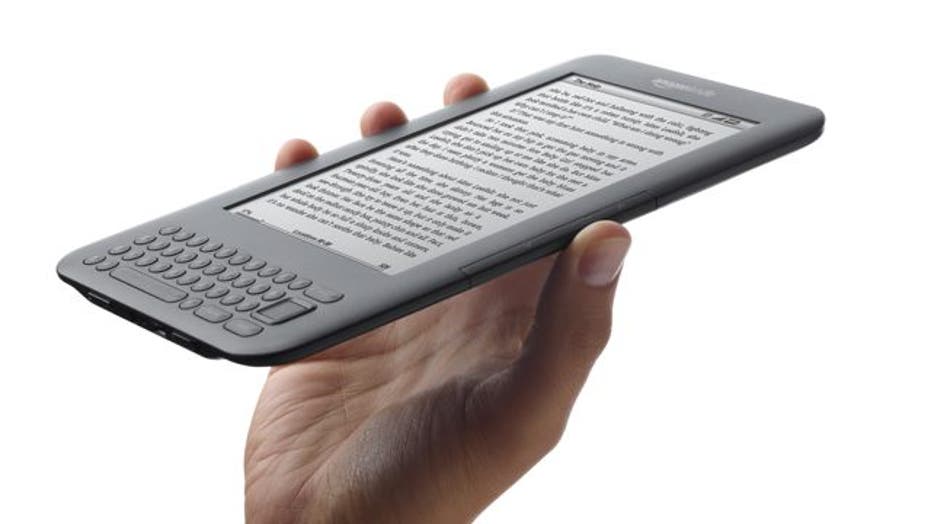Following Amazon's announcement of a new Kindle electronic book reader, Apple and Barnes & Noble may be thinking, "Is that all you've got?" Meanwhile, consumers may be wondering, "Why should I pay for an e-reader at all?"
Will there soon be a free e-book reader?
Amazon's third-generation Kindle will be available on August 27 in two versions: A $189 model that includes free 3G cellular access for buying books and a $139 Wi-Fi only model that can only download books over a public or home network. The new model introductions follow a price war initiated by Barnes & Noble this summer when the bookseller dropped the price of its 3G Nook to $199 and its Wi-Fi-only model to $149.
Aside from being a scant $10 less than the Barnes & Noble models, the new Kindles offer a few upgraded features, including a faster screen controller (to make flipping pages quicker} and more memory. The new e-book reader can hold up to 3,500 books -- that's 3,500 books Amazon wishes you'd buy at its online store, of course.
The downside to the Kindle is that it is exclusively tied to the Amazon store and vice versa, much in the way that Apple keeps its devices tied to its iTunes store. However, competition from the likes of Barnes & Noble, Borders, Sony and others is putting pressure on e-reader prices, with models available for as little as $120. Obviously the goal is to sell electronic books not e-readers, which is why both Amazon and Barnes & Noble offer free cellular data service.
Could Amazon offer the Kindle for free to customers who promise to buy, say, 25 books within the next year?
"We look at these as two independent businesses that need to stand on their own," Amazon spokeswoman Kinley Campbell told FoxNews.com. "The device business has to stand on its own, and the content business has to stand on its own."
Nevertheless, the businesses are tied tightly together: Kindle-format e-books are the only electronic books Amazon sells, after all. The purchased e-books cannot be read on a Borders Kobo or Barnes & Noble Nook. Conversely, Barnes & Noble has taken the opposite approach by adopting an open electronic book standard called ePub, which is supported by Google's online book project, Sony's e-readers, Borders' e-readers, and several other companies.
"We have a commitment to be as open as we can," explained Tony Astarita, Barnes & Noble's vice president of digital products. Astarita said his company supports the open standard so that buyers don't have to worry about having their entire library of electronic books locked up in one store.
Lock-in is precisely what has made iTunes so successful, of course. And now Apple's iPad has become a major competitor to the Kindle. The iPad has sold 3.3 million units so far, boasts a color screen, and can surf the Web.
On the other hand, the iPad is heavy, tipping the scales at 22 ounces, and it uses an LCD screen -- which is like staring at a light bulb when you're reading. Amazon's Kindle is a featherweight 8.7 ounces and uses an electronic ink screen that's easy on the eyes and can be read in direct sunlight. Furthermore, the lowest priced iPad costs a whopping $499. Consequently, e-readers like the Kindle may still outsell the iPad this year with estimated sales of 6.6 million units.
The iPad has numerous uses beyond just reading books as well, another reason for its high cost. The tablet was designed as a multi-purpose device, offering Web access, e-mail, music playback, and a wide array of other functions. And for that price, you're getting a very high-quality color screen.
Barnes & Noble, Sony and other manufacturers are very likely to counter Amazon's recent announcement with introductions of their own. Barnes & Noble would not comment on rumors of a new Nook being introduced before the holiday shopping season. But the company did say it is continually working on improving its e-reader, hinting that some changes would be forthcoming. That means e-reader prices will be headed lower still before the holiday shopping season.
The ultimate stocking stuffer this holiday could still be a free e-reader.

